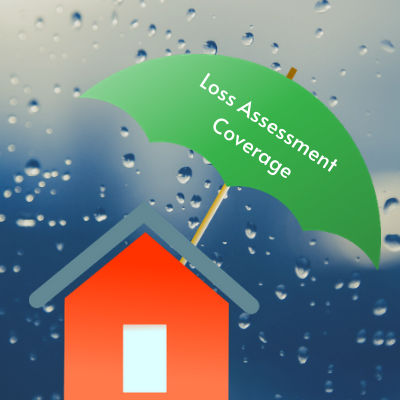
Damages resulting from hail storms and water leaks are two of the most common insurance claims for townhouse and condominium associations.
The Colorado hail season runs from mid-April to mid-September. According to the Rocky Mountain Insurance Information Association, Colorado’s Front Range sees about three or four catastrophic hails storms in a typical season. If you have lived in Colorado long, you will know that we have been hit particularly hard over the last couple years. Water leaks are another common source of damage in condominium communities and are inevitable as buildings age. These can be complex and serious claims especially when water from upper level units flows down multiple floors and causes damage to lower level units.
In such cases, the Association likely has insurance covering the damages. However, such policies contain increasing higher deductible amounts that often must be assessed to the Association’s homeowners. In the event of a large deductible related to hail storm roof damage that deductible is commonly assessed to the homeowners in the form of a special assessment. Depending upon the Association’s governing document and policies, deductibles from a water leak may be assessed to those individual homeowners involved in the specific incident.
The Colorado Common Interest Ownership Act (“CCIOA”) allows post-CCIOA associations to adopt and establish written nondiscriminatory policies and procedures related to the submittal of insurance claims and the responsibility for deductible payments. These policies commonly allocate responsibility for deductibles to the homeowners for claims pertaining to their units and/or claims that result from the homeowner’s negligence. These policies are especially useful in allocating deductibles in multi-unit water leak situations.
Policies outlining responsibility for insurance deductibles must be consistent with any requirements in the Association’s Declaration of Covenants and should outline instances when homeowners may be responsible for such deductible amounts. The Association’s Board of Directors should review the requirements in the Declaration and consult with legal counsel if they have questions, would like a policy, or if amendments to the covenants are needed to allow the Association to better address insurance and deductible issues.
A special assessment or deductible allocated to a homeowner may put that homeowner in the position of having to pay thousands (or tens of thousands) of dollars. Fortunately there is an insurance product known as “loss assessment” coverage that homeowners can obtain to cover all or some portion of those assessments. Homeowners in condominium and townhome communities should carry a H0-6 policy. That policy commonly includes coverage for the homeowner’s personal property, interior portions of the condominium not insured by the association, and loss assessment coverage. The loss assessment coverage is insurance to cover certain amounts assessed to the homeowner such as insurance deductibles.
We recommend all homeowners consult with their personal insurance providers to confirm their coverage and ensure their personal policy includes loss assessment coverage. Specific considerations should include:
- Does my policy include loss assessment coverage?
- What exactly does it cover?
- How much loss assessment coverage do I currently have?
- Should I increase the amount of my loss assessment coverage?
- What are the deductible amounts on the Association’s policies that may be allocated to me?
- How much is my deductible?
- What is the date of “loss” – the date of the hailstorm causing the damage or the date the assessment is imposed?
Given that hails storms and water leaks are here to stay we recommend that Boards:
- Ensure they understand the provisions in their covenants concerning deductibles;
- Consider amendments to their covenants if necessary;
- Adopt policies regarding the allocation of insurance deductibles; and
- Routinely educate and convey that information to their homeowners.
In turn, homeowners should provide copies of the Association’s insurance and deductible policies to their personal insurance agents, discuss their loss assessment coverage, and confirm that they have adequate coverage in the event an insurance deductible is assessed to them.
If you have any questions on the above, please feel free to consult any of our Altitude Community Law attorneys at 303.432.9999.
I do have a question. Your article says “The Colorado Common Interest Ownership Act (“CCIOA”) allows post-CCIOA associations to adopt and establish written nondiscriminatory policies and procedures related to the submittal of insurance claims and the responsibility for deductible payments.” I live in a pre-CCIOA community that has not adopted CCIOA. Does this have any impact on the association’s ability to establish written policies addressing this issue?